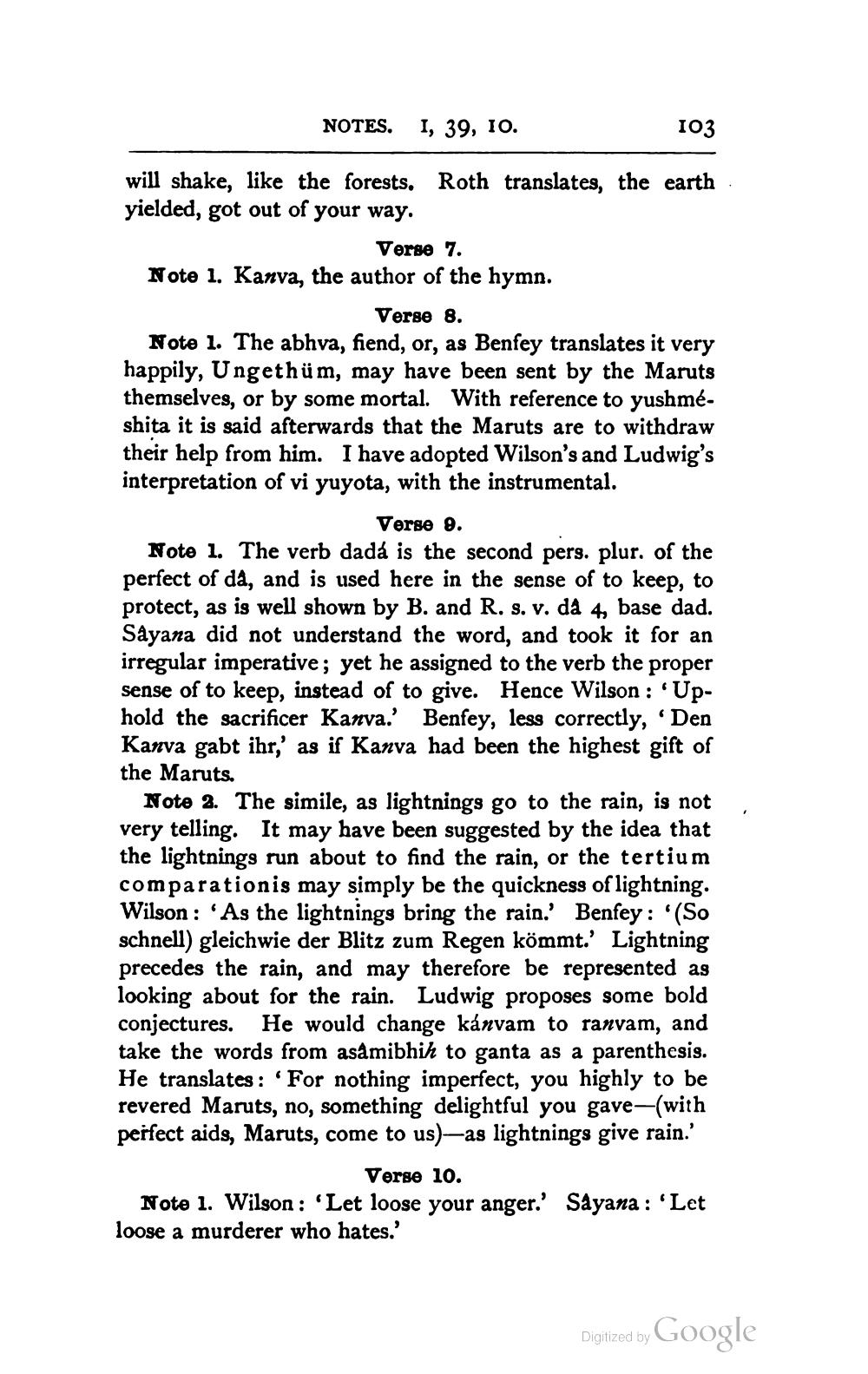________________
NOTES. 1, 39, 10.
IO3
will shake, like the forests. Roth translates, the earth yielded, got out of your way.
Verse 7. Note 1. Kanva, the author of the hymn.
Verse 8. Note 1. The abhva, fiend, or, as Benfey translates it very happily, Ungethüm, may have been sent by the Maruts themselves, or by some mortal. With reference to yushme. shita it is said afterwards that the Maruts are to withdraw their help from him. I have adopted Wilson's and Ludwig's interpretation of vi yuyota, with the instrumental.
Verse 9. Note 1. The verb dadá is the second pers. plur. of the perfect of da, and is used here in the sense of to keep, to protect, as is well shown by B. and R. s. v. da 4, base dad. Sayana did not understand the word, and took it for an irregular imperative; yet he assigned to the verb the proper sense of to keep, instead of to give. Hence Wilson : Uphold the sacrificer Kanva.' Benfey, less correctly, Den Kanva gabt ihr,' as if Kanva had been the highest gift of the Maruts.
Note 2. The simile, as lightnings go to the rain, is not very telling. It may have been suggested by the idea that the lightnings run about to find the rain, or the tertium comparationis may simply be the quickness of lightning. Wilson : 'As the lightnings bring the rain.' Benfey : '(So schnell) gleich wie der Blitz zum Regen kömmt.' Lightning precedes the rain, and may therefore be represented as looking about for the rain. Ludwig proposes some bold conjectures. He would change kánvam to ranvam, and take the words from asamibhih to ganta as a parenthesis. He translates : 'For nothing imperfect, you highly to be revered Maruts, no, something delightful you gave-with perfect aids, Maruts, come to us)-as lightnings give rain.'
Verse 10. Note 1. Wilson : 'Let loose your anger.' Sayana : 'Let loose a murderer who hates.'
Digitized by
Digized by Google




